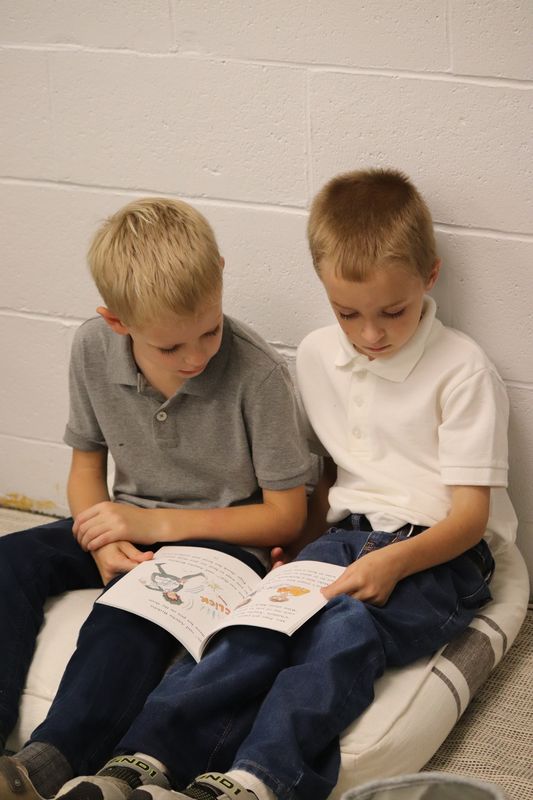My Brother’s Keeper

Crash! Oh, dear. Nelson’s box of 64 crayons just spilled again. Five children rush from their seats to help him pick up the crayons. This is in the middle of math class, so I would like for them to leave the clutter for a bit.
These children are very good at helping each other. A water bottle leaks and several hurry to get paper towels and try to dry it up. At the end of the day, someone holds up the leftover coats—whose coat is this? Today four people told me that Jeffrey left his water bottle at school.
Some helping is great, but some helping must be curtailed. Maria tells me that Joel is at Scott’s desk, telling him answers. I see Bryan actually writing answers on his neighbor’s paper. I remind them, “Take care of yourself!”
After listening to a sermon on being my brother’s keeper, I feel a bit convicted that I need to clarify to my students the times when they may help and when they should take care of themselves. A brother’s keeper does not just take care of him/herself. A brother’s keeper helps another to clean up, get their coat, etc. I want my students to be brother’s keepers. I want to be a brother’s keeper.
Sometimes I don’t know my role at school, and think, well, it’s none of my business. I’ll just let it go. Or maybe, I think, they don’t want my help. They don’t really care.
I need to get my focus off myself and think of others. This is hard for first graders, like the time when Michael was getting a long, long drink. I reminded him to think of others. He wiped his mouth and said, “Mostly I just think of myself.” Yes, I guess he probably does. And I guess I’m mostly thinking of myself when I decide not to help someone or feel hurt because my help is not needed.
I think of Romans 12:10 – In the ESV, it is “Love one another with brotherly affection. Outdo one another in showing honor.” As a brother’s keeper, I need to love with brotherly love, have kind affection for others, and honor others. I can let someone else have the award, promotion, honor, or recognition that I would have wanted.
I am impressed with the way my students are happy for a classmate. Chad cheered for Jon when Jon had many correct math facts, and burst out with, “You’re good at math!” Chad could have been jealous or annoyed, but he rejoiced with and cheered for Jon.
How can I help my students to “love one another with brotherly affection” and show honor to each other?
I thank them for helping others and remind those others to say “thank you.” I thank students for caring for others. We pray for each other and our requests. We make birthday cards for each other. I may quietly reward someone for their caring or helpfulness. I may ask a child to be a friend to a lonely child. When something is spilled, I often ask, “Who will be a good friend and help clean up?” We talk about what Jesus would do, and model this. I share scenarios to give ideas for behaviors for “brother’s keepers.” We can study Bible stories to learn about being good friends and helpers. We discuss and try out words the children may use. I may have to explicitly teach some of this. I point out examples of good helpers and brother’s keepers in the home, in classroom life, in stories, and in the Bible. We discuss how to be good winners and how to be good losers. We discuss and practice congratulating others.
One morning our chapel speaker talked about how we love God and love our neighbors as ourselves. He gave examples such as not laughing at a classmate who gives a silly answer. That day, one of the first-graders answered with an obviously wrong answer, and some children laughed. I reminded them of what Nelson said in chapel, so after that every answer, right or wrong, was greeted with “Good try!” and “That’s a nice try.”
Leave a Reply